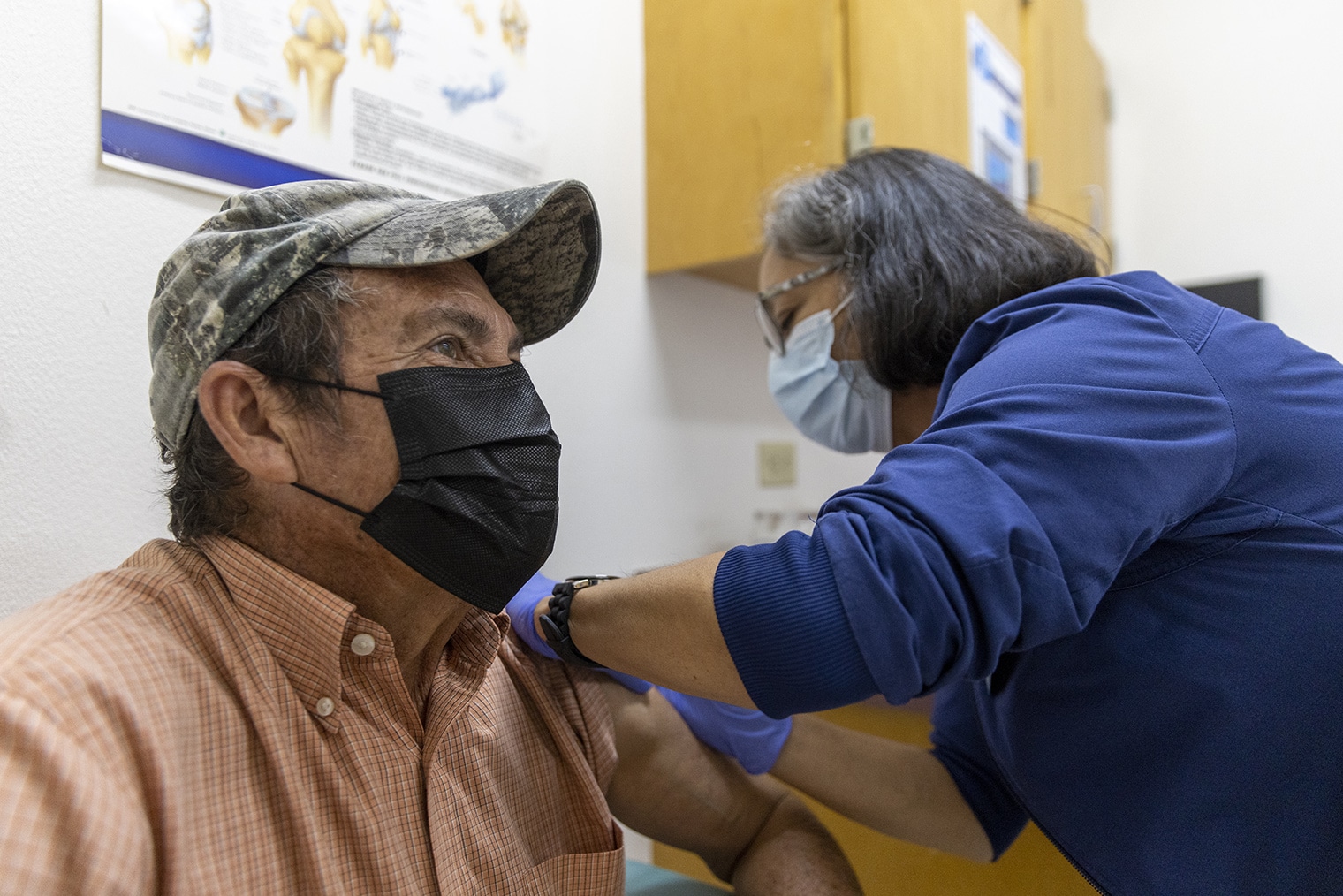Increasing COVID-19 Vaccine Access for Underserved Communities
- Country: United States
- Program Sponsor: U.S. Health Resources and Services Administration (HRSA)
- Duration: February 2022 – October 2022
- Program Goal: Increase equitable access to COVID-19 vaccines among medically underserved and vulnerable communities in Alabama, Florida, Georgia, Louisiana, and Texas.

The ongoing COVID-19 pandemic is exposing vaccination gaps among communities with high proportions of minority groups and individuals who are economically and socially marginalized. Despite increasing vaccination rates across the U.S., there are vast disparities in vaccine coverage within underserved communities where multiple access barriers exist. The emergence of COVID-19 variants like Omicron further exacerbates these gaps and places additional emphasis on the importance of booster vaccinations in these communities.
In order to reduce barriers to vaccine access and strengthen vaccine confidence, Project HOPE is engaging local health care professionals and partners that are trusted operators in these communities and using their existing platforms to conduct education and outreach with additional capacity and support.
Project HOPE is working with six Federally Qualified Health Centers and a coalition of 37 clinics from the State Associations of Free and Charitable Clinics to increase vaccination rates across five states: Alabama, Florida, Georgia, Louisiana, and Texas. Through these partner clinics, Project HOPE will increase vaccine access, provide community-level education on vaccines, and strengthen vaccine confidence in states with low vaccination rates and high rates of unvaccinated but willing populations.
The coalition partner clinics engaged in this project are well-positioned in their ability to serve the proposed target populations due to their demonstrated community engagement, well-developed trust with underserved populations, and strong track records of administering primary care and public health projects across their respective counties, with many already engaged in COVID-19 vaccine administration.
The program will target 37 identified counties within the five states and provide resources, training, and support toward mobilizing community health workers to educate and assist individuals in receiving COVID-19 vaccinations, with a focus on vulnerable and medically underserved communities, including racial and ethnic minority groups.
An estimated 72,250 beneficiaries are projected to benefit from vaccine outreach and education, and at least 18,139 beneficiaries will be fully vaccinated under the program.
This work expands an initial phase of the program that ran from July 2021-June 2022 in Harris and Hidalgo counties, Texas, in which Project HOPE vaccinated more than 2,000 people, engaged 86 partners, and reached more than 23,000 people with COVID-19 outreach and education materials.
![]()
Program objectives
- Health Systems Support: Strengthen partner clinics’ health workforce to facilitate the scale-up of vaccination coverage and outreach in underserved communities and catchment areas.
- Community Outreach: Reduce vaccine hesitancy and address barriers to vaccination in targeted communities and catchment areas.
- Training and Continued Education: Increase capacity and knowledge among partner clinic personnel in COVID-19 vaccine science and protocols, including infection prevention and control and risk communication and community engagement.
- Health Care: Increase vaccination coverage among underserved communities within clinic catchment areas and targeted counties.
![]()
The Community-Based Workforce to Build COVID-19 program is supported by the Health Resources and Services Administration (HRSA) of the United States Department of Health and Human Services as part of a financial assistance award totaling $8,755,265, with 100 percent funded by HRSA. The contents are those of the author(s) and do not necessarily represent the official views of, nor an endorsement, by HRSA/HHS, or the U.S. Government. For more information, please visit the HRSA website, hrsa.gov.